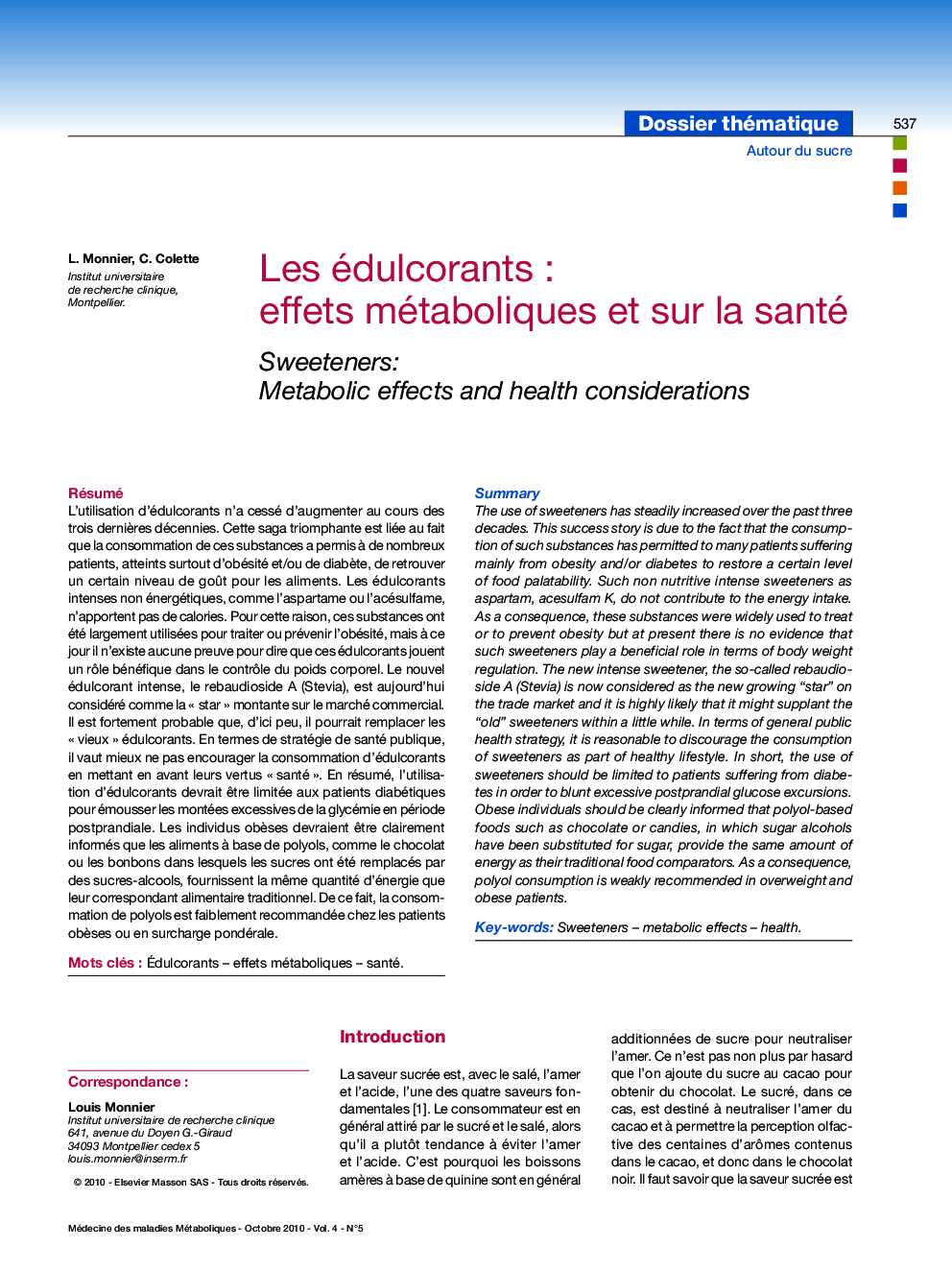| Article ID | Journal | Published Year | Pages | File Type |
|---|---|---|---|---|
| 3275826 | Médecine des Maladies Métaboliques | 2010 | 6 Pages |
Abstract
The use of sweeteners has steadily increased over the past three decades. This success story is due to the fact that the consumption of such substances has permitted to many patients suffering mainly from obesity and/or diabetes to restore a certain level of food palatability. Such non nutritive intense sweeteners as aspartam, acesulfam K, do not contribute to the energy intake. As a consequence, these substances were widely used to treat or to prevent obesity but at present there is no evidence that such sweeteners play a beneficial role in terms of body weight regulation. The new intense sweetener, the so-called rebaudioside A (Stevia) is now considered as the new growing “star” on the trade market and it is highly likely that it might supplant the “old” sweeteners within a little while. In terms of general public health strategy, it is reasonable to discourage the consumption of sweeteners as part of healthy lifestyle. In short, the use of sweeteners should be limited to patients suffering from diabetes in order to blunt excessive postprandial glucose excursions. Obese individuals should be clearly informed that polyol-based foods such as chocolate or candies, in which sugar alcohols have been substituted for sugar, provide the same amount of energy as their traditional food comparators. As a consequence, polyol consumption is weakly recommended in overweight and obese patients.
Related Topics
Health Sciences
Medicine and Dentistry
Endocrinology, Diabetes and Metabolism
Authors
L. Monnier, C. Colette,
